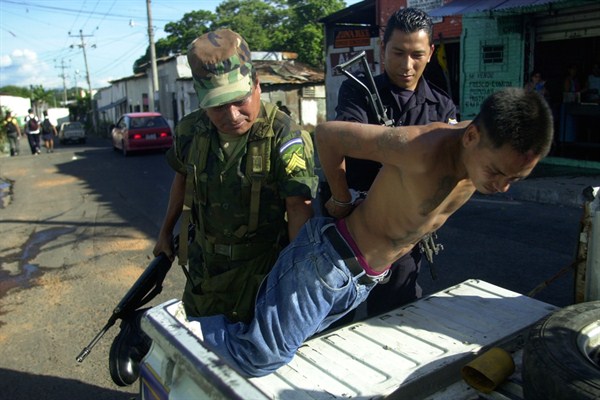One of the primary causes of political violence in Central America during the second half of the 20th century was the absence of democratic rule of law. Elected or not, political leaders were rarely held accountable under the law. Laws were established and applied in an arbitrary fashion. As former Brazilian President Getulio Vargas is alleged to have said, “For my friends, whatever they want; for my enemies, the law.” “Justice” was often served by individuals working outside of official state sanction—that is, paramilitaries and death squads. When the law was applied, it favored those in positions of authority, often to the detriment of the most vulnerable. Equality before the law was a myth.
Revolutionaries and reformists eventually mobilized to transform these unjust political, economic and social systems, and in the 1970s and 1980s efforts were made to establish democratic rule of law in the midst of the region’s civil wars. Free and fair elections began to be viewed as the only legitimate means of securing power and, while the left was generally excluded, several countries held elections that were freer and fairer than those that had occurred in previous decades.
Guatemala, El Salvador and Honduras are in some ways representative of the region’s struggles with the rule of law. In all three countries, investments were made to promote human rights, strengthen civilian institutions, weaken the power of the military and establish functional criminal justice systems. However, these efforts were for the most part unsuccessful.

